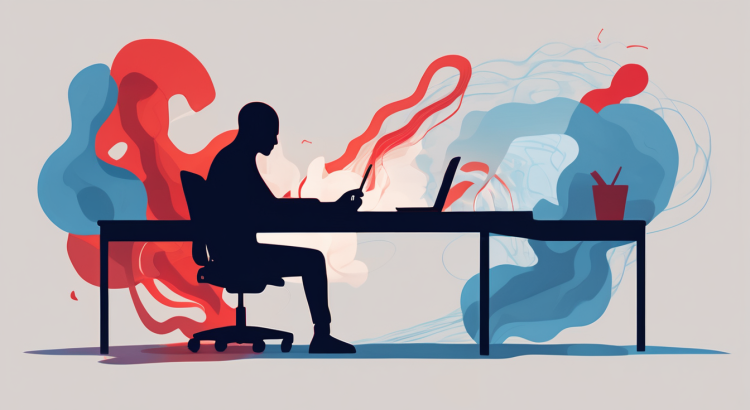LightHouse Denver reports growing concern as many adults experience anxiety, rage, and brain fog linked to stress hormones and emotions.
How Stress Hormones and Emotions Interact
Anxiety, explosive anger, and mental fuzziness often start with stress hormones and emotions getting stuck in overdrive. When the brain senses a threat, real or imagined, it signals the adrenal glands to release cortisol and adrenaline.
These chemicals prepare the body to fight or flee. Heart rate rises, breathing speeds up, and muscles tense. However, when this cycle repeats daily, stress hormones and emotions stop helping and begin to harm mental clarity.
Chronic activation of this system can blunt memory, increase irritability, and shorten the emotional fuse. On the other hand, balanced stress hormones and emotions support focus, motivation, and stable mood.
Key Hormones Behind Mood Swings and Brain Fog
Several hormones influence how we think and feel, not only cortisol. The interaction among stress hormones and emotions is complex, but a few players stand out.
Cortisol regulates energy, blood sugar, and the sleep–wake cycle. Too much cortisol for too long is linked to anxiety, racing thoughts, and brain fog. Too little can cause fatigue, low motivation, and emotional flatness.
Adrenaline creates the intense physical rush felt during panic or rage. It sharpens senses in short bursts, but frequent spikes can make stress hormones and emotions feel chaotic and unpredictable.
Estrogen and progesterone affect serotonin and GABA, two calming neurotransmitters. Shifts in these sex hormones explain why many women report anxiety, rage, and brain fog around PMS, postpartum, and perimenopause.
Thyroid hormones regulate metabolism in the brain and body. Low thyroid can worsen brain fog and low mood, while high thyroid can amplify anxiety and agitation.
Signs Your Symptoms May Be Hormone-Related
Distinguishing life stress from hormone imbalance is not always simple. However, patterns in stress hormones and emotions can offer useful clues.
Notice whether your symptoms follow a cycle. In menstruating women, symptoms that worsen at the same time each month often reflect hormone shifts. Irritability, crying spells, and cloudy thinking during the luteal phase may point to premenstrual mood changes.
In perimenopause, erratic periods, night sweats, and sudden rage episodes can all be tied to fluctuating estrogen and progesterone. In addition, thyroid issues or adrenal dysregulation can steadily amplify stress hormones and emotions regardless of life events.
Pay attention if anxiety and rage feel “out of proportion” to what is happening. When reactions seem extreme or automatic, hormones may be amplifying the brain’s threat response.
When Everyday Stress Fuels the Fire
Even without medical imbalances, ongoing stress can distort stress hormones and emotions. Long work hours, sleep loss, conflict, and constant digital stimulation keep the nervous system activated.
Over time, this chronic pressure makes the brain more sensitive. Small frustrations trigger big responses. Memory slips, word-finding problems, and difficulty concentrating appear as brain fog. Meanwhile, simmering tension erupts as sudden rage or silent withdrawal.
Relationships, finances, and caregiving responsibilities can also push stress hormones and emotions beyond their healthy range. When there is no real recovery time, the body stops distinguishing between minor stressors and major threats.
Read More: How the body responds to long-term daily stress load
How Anxiety, Rage, and Brain Fog Show Up in Daily Life
Many people do not recognize how strongly stress hormones and emotions shape everyday behavior. Anxiety may appear as overthinking, constant checking, or avoiding decisions. Brain fog might feel like searching for simple words or forgetting what you were doing.
Rage can be obvious, like yelling or slamming doors, or quiet, like seething resentment. On the other hand, some people internalize anger, turning it into self-criticism and shame instead of outward explosions.
These patterns often create more stress hormones and emotions. For example, a rage episode at home leads to guilt, tension, and fear of future conflict. That worry then keeps cortisol elevated, worsening sleep and mental clarity.
Practical Ways to Calm the System
Addressing anxiety, rage, and brain fog means helping both stress hormones and emotions settle. Small, consistent steps can make a large difference over time.
Prioritize sleep. Aim for regular sleep and wake times, a dark bedroom, and reduced screens before bed. Better sleep helps normalize stress hormones and emotions and improves thinking speed.
Use the breath strategically. Slow, deep breathing through the nose, with a long exhale, signals safety to the nervous system. After that, the heart rate drops, and the body produces fewer stress chemicals.
Move your body. Gentle exercise such as walking, yoga, or light strength training burns off excess stress hormones and emotions. Even 10 minutes can noticeably reduce tension and clear the mind.
Reduce stimulants. High caffeine and sugar intake can worsen anxiety, irritability, and sleep disruption. On the other hand, stable blood sugar calms the brain and supports even moods.
When to Seek Professional Help
Self-care has limits. Sometimes stress hormones and emotions are so dysregulated that medical or psychological support becomes essential. Consider professional help if anxiety, rage, or brain fog interfere with work, relationships, or safety.
A primary care clinician can screen for thyroid issues, anemia, and blood sugar problems. Hormone testing may identify patterns in cortisol or sex hormones that influence stress hormones and emotions.
Mental health professionals offer tools to retrain thoughts and reactions. Cognitive behavioral therapy, for example, helps reshape fear responses and reduce catastrophic thinking. Meanwhile, certain medications can stabilize mood or support sleep when needed.
Support groups, either in person or online, provide connection and validation. Hearing similar stories decreases shame and normalizes the impact of stress hormones and emotions on everyday life.
Integrating Mind and Body for Long-Term Relief
Long-term relief usually requires a combined approach. Instead of choosing between “it is stress” or “it is hormones,” it helps to see how stress hormones and emotions influence each other.
Address lifestyle foundations like sleep, nutrition, movement, and boundaries around work. At the same time, explore medical evaluation for hormone and thyroid balance if symptoms persist or worsen.
Building emotional skills also matters. Learning to name feelings, pause before reacting, and express needs calmly reshapes stress hormones and emotions over time. Even brief daily check-ins with yourself can interrupt the cycle of anxiety, rage, and brain fog.
For many people, understanding the link between stress hormones and emotions becomes the turning point. Instead of feeling broken or weak, they see a system that is overwhelmed but capable of healing. With patient adjustments and proper support, stress hormones and emotions can move back toward balance, and clarity can slowly replace the heavy fog.



